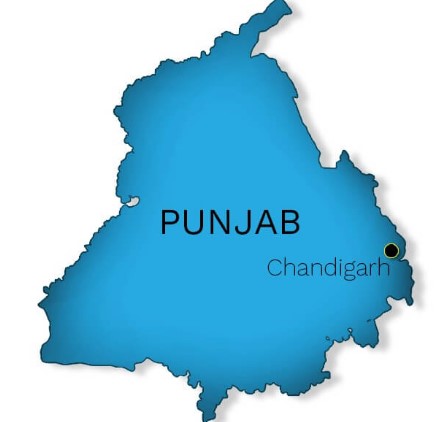
20 MORE QURANTINE CENTRES SET UP FOR COPS, TAKING TOTAL NO. OF SUCH NOTIFIED CENTRES TO 78
Chandigarh, May 17: Even as 8 of the 16 Covid positive cops in the state were discharged after full recovery from hospitals today, the Punjab Police continued to scale up its protective and welfare measures for personnel on frontline duty, adding 20 district quarantine centres for its personnel in the past one week.
With this, the total number of such centres, notified by the Department of Health & Family Welfare, has gone up to 78, DGP Dinkar Gupta disclosed on Sunday, adding that of the 16 Covid+ police personnel in hospitals as on May 14, eight had been discharged today.
Giving details on the quarantined police personnel, the DGP said a total of 190 cops from District police (110) and Armed police (80) are currently in quarantine at the district quarantine centres set up by the department, after coming in contact with infected persons while on duty. Another 90 district police personnel and 69 Armed police personnel are under home quarantine, taking the total number of cops now in quarantine to 349, from the earlier 615, of whom 266 had completed the mandatory quarantine period.
To ensure strict adherence with all protocols and uncompromising care for the well-being of the cops at the quarantine centres, close coordination is maintained with police nodal officers of the districts and doctors, said the DGP. The welfare wing receives information from the nodal officers regarding health updates on quarantined personnel every day, while advisories issued by the Department of Health of Punjab and WHO regarding Covid-19 is circulated to all the quarantined cops.
Similar care is taken with respect to those in home quarantine, and the availability of medical officers is ensured for monitoring their health for any symptoms through the police nodal officers of the districts.
The DGP said an analysis of the quarantined police personnel and those tested positive revealed that 16 cops had to undergo quarantine as they were primary contacts of police officials tested positive, while
150 cops were primary contacts of accused persons who were brought for interrogation and had thereafter tested Covid positive.
Another 118 cops had to be quarantined as they were deployed on duty to bring back pilgrims from Hazur Sahib, workers from Jaisalmer (Rajasthan), escort students to Jawahar Navodaya Sadan, travel to J&K to drop stranded children and labour , and escort students from Kota (Rajasthan). In addition, 54 were quarantined in District Mansa as they were primary contacts of Covid positive cops who were performing duty in the containment zone of Buddladah, Mansa, while 11 in Ludhiana were quarantined as they came in contact with the body of a person suspected to have died of infection.
Further, the welfare wing officers from headquarters check with the nodal officers every day, and also talk to those under quarantine on their health status and well-being. Notably, a nodal officer from the police department has been appointed in each districts /unit to monitor the health of all those who are under quarantine or at the hospital isolation centers.
Every day, information on the police personnel tested Covid positive, quarantined and discharged/recovered is maintained on a spreadsheet, based on the daily information received from districts and armed police units and the summary shared with DGP Punjab. The Special DGP, PAP also monitors the health status of all quarantined police personnel of the Armed Units, including the visits of the doctors and the diet been given to them.
A Whatsapp group of the Covid positive cops under isolation in hospitals has been created with Ms. V Neeraja, ADGP Welfare who’s coordinating and supervising the entire effort for the Punjab Police, AIG/ welfare, the Range supervisory officers and the nodal officers as members to keep in touch with them directly.
Meanwhile, the welfare wing has, as per the DGP’s directions, written to all districts and Armed police units to with draw police personnel who are suffering from chronic medical problems like BP, diabetes and other respiratory problems from frontline duties, and also those above 55 years of age and suffering from chronic medical problems, based on the information of 2019 annual medical examination of the police personnel.



